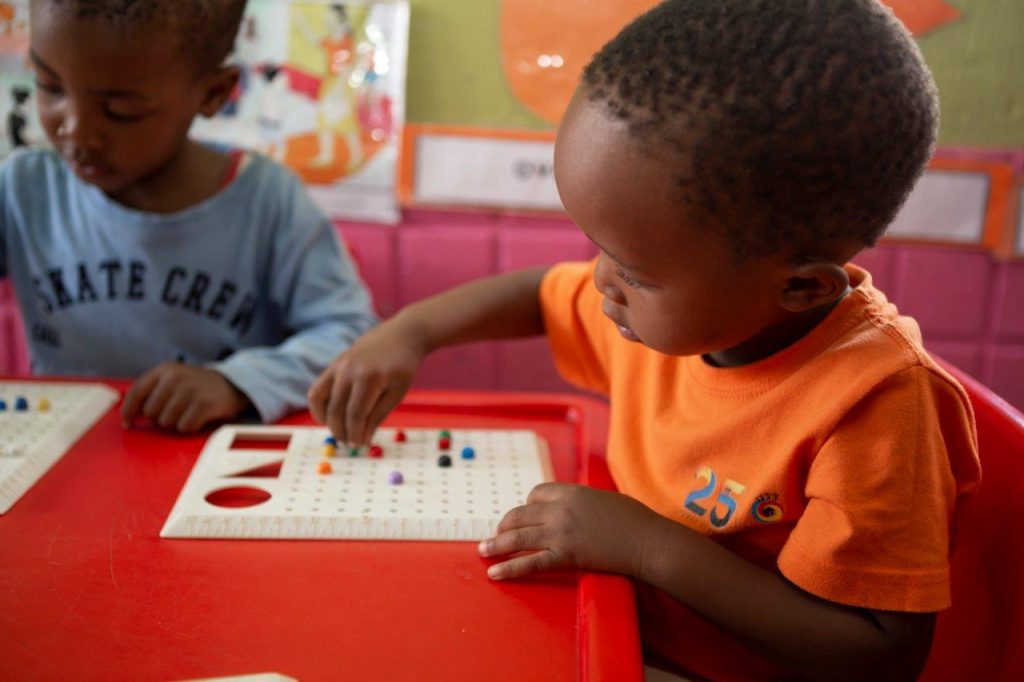On the 8th of September each year, the world comes together to celebrate International Literacy Day, a global reminder of the critical importance of literacy as a foundation for education and empowerment. In South Africa, where the state of education has long been a topic of national concern, this day resonates even more strongly. Startling statistics like the PIRLS (Progress in International Reading Literacy Study) findings, showing that 81% of Grade 4 learners cannot read for meaning, serve as a wake-up call. Yet, amidst these challenges, organizations like Afrika Tikkun Bambanani are making strides to change this narrative.
Afrika Tikkun Bambanani is at the forefront of the battle to improve literacy rates in South Africa. Founded by Theresa Michael and Tessa Forman, the organization has taken on the mission to provide high-quality education to every child, especially those in underprivileged areas. Their aim is to make sure that no child is part of the frightening statistics.
Through their innovative approach, they have implemented an internationally certified curriculum in 300 Early Childhood Development centers across rural South Africa. This curriculum is designed to give young children a solid grounding in pre-reading skills, laying the foundation for excellent reading abilities in the future. Over 30,000 children have already been impacted by this initiative.
The results of this curriculum implementation have been excellent. In 2023, Afrika Tikkun Bambanani reported a 99.8% school readiness rate among the children who had been through their program. This is a testament to the effectiveness of their curriculum, which is not only designed to instill literacy skills but also to develop the cognitive and social abilities that children need to succeed in formal schooling.
At the heart of this success is a commitment to ensure that every child is equipped with the necessary skills to excel in reading, a critical gateway to learning in every subject. By focusing on pre-reading skills at an early age, Afrika Tikkun Bambanani is setting children up for success long before they even enter the school system.
The importance of early reading cannot be overstated. Research indicates that by the time a child is 6 years old, they should have been exposed to 10,000 books to build the foundation for strong literacy skills. However, for many children in underprivileged areas, access to books is a luxury they simply do not have.
To address this, Afrika Tikkun Bambanani has launched a new project to include libraries in their outreach centers. These libraries will provide children with access to a world of stories, knowledge, and imagination—ensuring that every child has the opportunity to develop a love for reading from an early age. With the inclusion of these libraries, children in these centers will no longer be left behind. Instead, they will be given the right to the same educational opportunities as their more privileged peers.

As we celebrate World Literacy Day, it is crucial to remember that literacy is not just the ability to read and write. It is the foundation of lifelong learning, critical thinking, and informed decision-making. In a world that is increasingly driven by knowledge, literacy opens doors to opportunities, personal growth, and social inclusion.
Afrika Tikkun Bambanani’s work shows us that change is possible. Through their commitment to providing quality education and improving literacy rates, they are helping to create a future where every child in South Africa has the opportunity to excel. But this is just the beginning. The need for widespread access to quality literacy education remains, and it is only through continued collaboration, support, and innovation that we can ensure every child, regardless of their background, has the chance to succeed.
This World Literacy Day, let us reflect on the importance of reading, not just as a skill but as a right. Together, we can work towards a future where literacy is no longer a privilege but a guarantee for all.
For more information about Afrika Tikkun Bambanani, please visit https://afrikatikkunbambanani.org/

